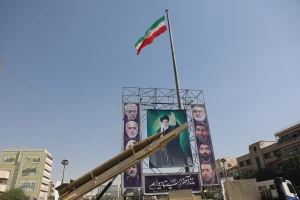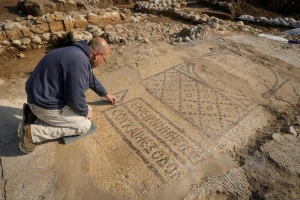Iran rejects new nuclear talks with European nations & UN nuclear watchdog after snapback sanctions

The Iranian regime said it has no intention of resuming nuclear talks with European nations and also threatened to stop cooperating with the UN nuclear watchdog IAEA.
This came after the so-called E3 nations - Britain, France and Germany- reimposed sanctions on Sept. 28, under the so-called snapback mechanism of the 2015 Iran nuclear deal.
“We have no plans for negotiations at this stage,” Iranian foreign ministry spokesman Esmaeil Baghaei said on Monday.
“Of course, diplomacy – in the sense of maintaining contacts and consultations – will continue,” he added. “Whenever we feel that diplomacy can be effective, we will certainly make decisions based on the country’s interests and priorities.”
Iran’s Foreign Minister Abbas Araghchi said on Sunday that the framework of cooperation between the regime and the IAEA “is no longer relevant.”
The so-called Cairo agreement had formalized cooperation with Iran, for example, allowing the watchdog to inspect Iranian nuclear sites.
“The three European countries thought they had leverage in their hands, threatening to implement a snapback,” Araghchi said.
“Now they have used this lever and seen the results … the three European countries have definitely diminished their role and almost eliminated the justification for negotiations with them.”
Relations between Iran and the European nations, which tried to act as mediators between the regime and the U.S. and Israel, have been tested over the past week.
The European Union had sought to “encourage Iran to act as a responsible power in the Middle East,” the bloc’s chief diplomat, Kaja Kallas, said at the EU-GCC High-Level Forum on Regional Security and Cooperation in Kuwait earlier this week.
She acknowledged that the snapback sanctions constituted “a setback but not the end of diplomacy.”
Germany’s Foreign Minister Johann Wadephul warned that Tehran was “projecting (a) destabilizing influence” through its regional proxies, particularly mentioning the attacks by the Yemeni Houthis, which he said were endangering both Israel and international shipping lanes in the Red Sea.
Baghaei hit back on Tuesday, charging that “those who reimposed restrictions on Iran and accuse us of destabilization have no right to lecture us.”
Iran later summoned European ambassadors in Tehran on Wednesday to protest alleged “interventionist and baseless” remarks in a joint statement by the EU and the Gulf Cooperation Council (GCC) after the summit.
The regime claimed that the EU-GCC communiqué had included “meddlesome allegations” which questioned Iranian sovereignty over three islands in the Persian Gulf.
The statement had called for a peaceful settlement of the dispute between Iran and the United Arab Emirates over the islands Abu Musa, Greater Tunb and Lesser Tunb, while urging to curb the regime’s proliferation of missiles, drones and related technology.

The All Israel News Staff is a team of journalists in Israel.
You might also like to read this:











